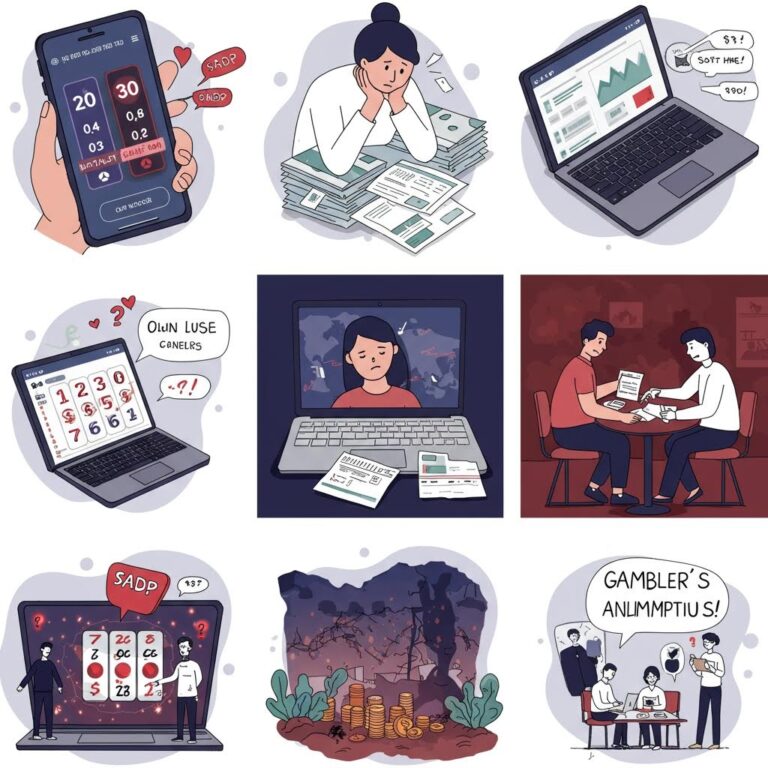AI 피트니스의 새로운 패러다임
개인 맞춤형 운동 솔루션의 진화
전통적인 피트니스 센터에서 개인 트레이너와 1:1 세션을 받으려면 상당한 비용과 시간이 필요했다. 하지만 AI 비디오 코칭 기술은 이러한 한계를 완전히 뒤바꾸고 있다.
최신 컴퓨터 비전 기술이 사용자의 운동 자세를 실시간으로 분석한다. 마치 숙련된 트레이너가 옆에서 지켜보듯 정확한 피드백을 제공하는 것이다. 이는 단순한 동작 인식을 넘어 개인의 신체 특성까지 고려한 맞춤형 지도를 가능하게 만들었다.
재활과 일반 트레이닝의 경계 해체
기존에는 재활 운동과 일반 피트니스 트레이닝이 명확히 구분되어 있었다. 재활은 병원이나 전문 센터에서, 운동은 헬스장에서 따로 진행되는 것이 일반적이었다.
AI 기술은 이런 경계를 허물고 있다. 개인의 건강 상태와 운동 능력을 종합적으로 분석해 재활과 피트니스를 연결하는 통합 솔루션을 제시한다. 무릎 수술 후 재활 중인 사람도 점진적으로 일반 운동으로 전환할 수 있는 맞춤 프로그램을 받게 된다.
실시간 동작 분석의 혁신적 접근
AI 비디오 코칭의 핵심은 정교한 동작 분석 알고리즘에 있다. 사용자의 관절 각도, 움직임 패턴, 균형감각을 수십 개의 데이터 포인트로 측정한다.
이 과정은 마치 의료진이 환자의 상태를 다각도로 진단하는 것과 유사하다. 온라인 플랫폼에서 제공되는 다양한 분석 도구들이 개인의 운동 패턴을 세밀하게 파악한다. 안전한 운동 환경 조성이 최우선 목표가 된다.
맞춤형 코칭 시스템의 구현 원리
개인별 데이터 수집과 분석 과정
AI 코칭 시스템은 사용자의 기본 정보부터 시작한다. 나이, 성별, 운동 경력, 기존 부상 이력 등을 종합적으로 고려한다. 이는 신뢰할 수 있는 맞춤형 프로그램 설계의 기초가 된다.
초기 평가 세션에서는 기본 동작 테스트를 진행한다. 스쿼트, 런지, 플랭크 같은 기본 움직임을 통해 개인의 운동 능력을 측정한다. 이 과정에서 수집된 데이터는 향후 모든 운동 프로그램의 기준점이 된다.
지속적인 모니터링을 통해 진전 상황을 추적한다. 매일의 운동 데이터가 누적되면서 더욱 정확한 개인 프로필이 완성된다. 커뮤니티 내에서 유사한 조건의 사용자들과 비교 분석도 가능하다.
적응형 운동 프로그램 설계
AI 시스템의 가장 큰 장점은 실시간 적응 능력이다. 사용자의 컨디션 변화를 즉시 감지해 운동 강도를 조절한다. 피로도가 높은 날에는 자동으로 강도를 낮추고, 컨디션이 좋을 때는 도전적인 프로그램을 제시한다.
부상 예방을 위한 안전 장치도 내장되어 있다. 위험한 자세나 과도한 부하가 감지되면 즉시 경고 메시지를 표시한다. 마치 전문 분석가이드가 옆에서 지켜보는 것 같은 세심한 관리를 받게 된다.
검증된 운동 방법론의 적용
AI 코칭 시스템에 적용되는 모든 운동 프로그램은 철저한 검증 과정을 거친다. 스포츠과학 전문가들이 개발한 방법론을 기반으로 한다. 이는 온라인 환경에서도 오프라인 못지않은 전문성을 보장한다.
검증플랫폼을 통해 각 운동법의 효과성과 안전성을 지속적으로 모니터링한다. 스포츠커뮤니티의 피드백과 실제 사용자 데이터를 종합해 프로그램을 개선한다. 마치 카지노 검증 시스템처럼 엄격한 기준을 적용해 운동 프로그램의 품질을 관리한다.
메이저업체 수준의 신뢰성 확보가 핵심 목표다. 사용자들이 안심하고 운동할 수 있는 환경을 만드는 것이 최우선이다. 이를 통해 AI 피트니스 코칭의 새로운 표준을 제시하고 있다.

실시간 모니터링과 적응형 코칭 시스템
동작 분석과 즉시 피드백 메커니즘
AI 비디오 코칭의 핵심은 실시간 동작 분석 능력에 있다. 컴퓨터 비전 기술이 사용자의 관절 각도, 움직임 속도, 자세 정렬을 초당 30프레임으로 분석한다.
이는 마치 숙련된 물리치료사가 환자의 미세한 움직임까지 관찰하는 것과 같다. 스쿼트 동작에서 무릎이 안쪽으로 굽어지는 순간을 포착하고, 즉시 교정 지시를 제공한다.
온라인 플랫폼을 통한 데이터 수집은 개인별 운동 패턴을 학습시킨다. 매 세션마다 축적되는 정보는 더욱 정확한 코칭으로 발전한다.
부상 예방을 위한 예측 알고리즘
AI 시스템은 과거 부상 데이터와 현재 운동 패턴을 비교 분석한다. 어깨 회전근개 손상 위험이 높은 동작을 미리 감지하고 강도를 조절한다.
이러한 예측 모델은 수천 명의 운동 데이터를 기반으로 구축된다. 홈트와 재활 사이, 프레임 단위 피드백을 목표로 보증업체 수준의 신뢰성을 확보하기 위해 의료진과 재활 전문가들이 알고리즘 개발에 참여한다.
실시간검증 시스템이 운동 중 위험 신호를 포착하면 즉시 운동을 중단시킨다. 안전이 최우선 가치로 설정되어 있기 때문이다.
개인화된 진행도 추적과 목표 설정
각 사용자의 체력 수준과 재활 단계에 맞춘 맞춤형 로드맵이 제공된다. 무릎 수술 후 재활 환자라면 관절 가동범위 회복이 우선 목표가 된다.
AI는 일주일 단위로 진행 상황을 평가하고 다음 단계를 제안한다. 마치 카지노 검증 과정에서 단계별 심사를 거치듯, 체계적인 검증절차를 통해 운동 강도가 상향 조정된다.
스포츠커뮤니티 내에서 비슷한 목표를 가진 사용자들과 진행도를 공유할 수 있다. 동기 부여와 지속성 향상에 큰 도움이 된다.
미래 지향적 헬스케어 생태계 구축
의료진과의 연계 시스템
AI 비디오 코칭 플랫폼은 단순한 운동 앱을 넘어선다. 물리치료사, 재활의학과 전문의와 직접 연결되는 통합 시스템이다.
환자의 운동 데이터가 담당 의료진에게 실시간으로 전송된다. 검증플랫폼 역할을 하며 전문가들이 원격으로도 재활 과정을 모니터링할 수 있다.
메이저업체 수준의 보안 시스템이 민감한 의료 정보를 보호한다. 환자와 의료진 간의 신뢰 관계가 디지털 환경에서도 유지된다.
커뮤니티 기반 학습과 성장
사용자들이 서로의 경험을 나누는 스터디 그룹이 형성된다. 같은 부위 재활을 겪는 사람들끼리 정보를 교환하고 격려한다.
분석가이드를 통해 개인의 운동 데이터를 해석하는 방법을 배운다. 자신의 몸 상태를 더 잘 이해하게 되는 것이다.
커뮤니티 내 전문가들이 정기적으로 Q&A 세션을 진행한다. 검증업체가 제공하는 것처럼 신뢰할 수 있는 정보만이 공유된다.
지속 가능한 건강 관리 모델
AI 피트니스 혁신은 일시적인 트렌드가 아니다. 개인 맞춤형 건강 관리의 새로운 표준이 되고 있다.
재활과 트레이닝의 경계가 사라지면서 예방 중심의 헬스케어가 가능해진다. 질병이 발생한 후 치료하는 것이 아니라, 미리 예방하는 시대가 열린다.
이러한 변화는 의료비 절감과 삶의 질 향상이라는 두 마리 토끼를 잡는다. AI 기술이 만들어내는 가장 인간적인 혁신이라 할 수 있다. 개인의 건강 데이터를 기반으로 한 맞춤형 솔루션은 앞으로 더욱 정교해질 것이며, 재활과 피트니스 영역에서 새로운 가능성을 계속 열어갈 것이다.
